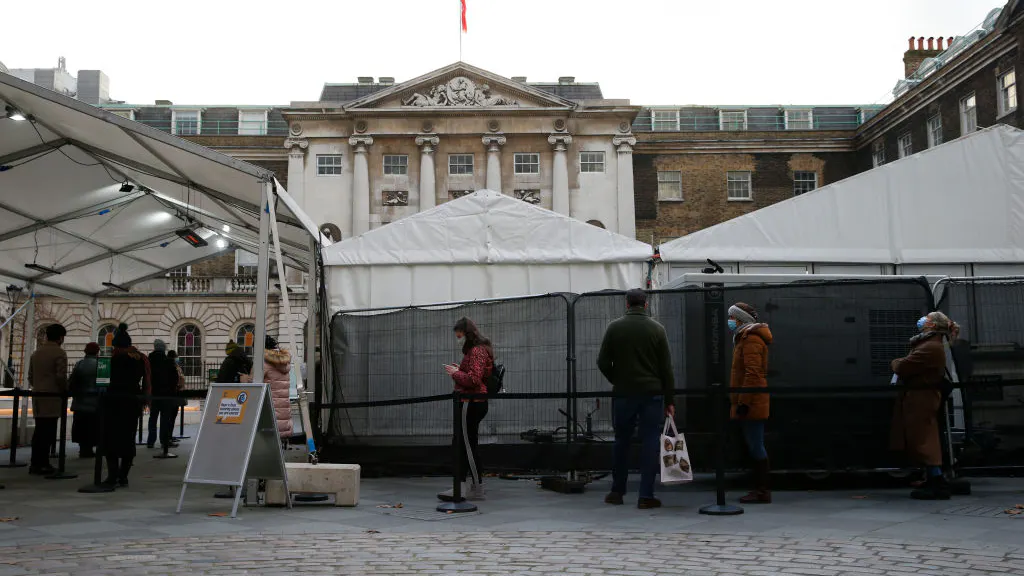Dr. Anthony Fauci, the top infectious disease expert at the White House, advised against pursuing the vaccine strategy that the United Kingdom recently endorsed, which involves prioritizing the first inoculation and potentially delaying the second inoculation for up to 3 months.
“I would not be in favor of that,” Dr. Fauci told CNN host Elizabeth Cohen on New Year’s Day. “We’re going to keep doing what we’re doing.”
Under the British plan, which was approved earlier this week, the government will prioritize first-round inoculations by extending the timeframe for receiving the booster dose. “This will maximise the number of people getting vaccine and therefore receiving protection in the next 12 weeks,” said a group of British health officers advocating for the policy.
For the Pfizer vaccine, that means offering the second dose between 3 weeks and 12 weeks after the recipient’s first dose instead of after three weeks; for the AstraZeneca vaccine, this means offering the second dose between 2 weeks and 12 weeks after the first dose.
According to The New York Times, the U.K. has also “quietly updated” its vaccine guidelines to allow for, in some circumstances, recipients of one vaccine to receive the second dose from another vaccine if the manufacturer of the first dose is not known or if the same vaccine is unavailable.
From the U.K.’s updated vaccine guidelines:
There is no evidence on the interchangeability of the COVID-19 vaccines although studies are underway. Therefore, every effort should be made to determine which vaccine the individual received and to complete with the same vaccine. For individuals who started the schedule and who attend for vaccination at a site where the same vaccine is not available, or if the first product received is unknown, it is reasonable to offer one dose of the locally available product to complete the schedule. This option is preferred if the individual is likely to be at immediate high risk or is considered unlikely to attend again. In these circumstances, as both the vaccines are based on the spike protein, it is likely the second dose will help to boost the response to the first dose. For this reason, until additional information becomes available, further doses would not then be required.
The country’s decision has been met with skepticism from some scientists and researchers, who have noted the lack of data behind the policy.
“There are no data on this idea whatsoever,” said John Moore, a vaccine expert at Cornell University. Moore also said U.K. officials “seem to have abandoned science completely now and are just trying to guess their way out of a mess.”
“None of this is being data driven right now,” Dr. Phyllis Tien, an infectious disease physician at UC San Francisco, told the Times. “We’re kind of in this Wild West.”
The U.S. Centers for Disease Control and Prevention says that COVID-19 vaccines are “not interchangeable,” but in the event that two different doses of COVID-19 vaccine are accidentally administered to the same patient, “no additional doses of either product are recommended.”

.png)
.png)

